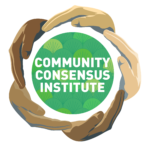We arrived mid-afternoon in Al Aqaba. Mayor Haj Sami was waiting at the bus stop / village center in this rural agricultural village of approximately 300 people. Not far across the valley was a mock village used for Israel war games, within easy sight of the village.
Mayor Haj Sami met us in his office after we unloaded our luggage in the community guesthouse. Sami, began by using the word “Peace,” to live in peace with the neighbors. He then suggested that we take a tour of the village. Sami is in a wheel-chair, confined for life from a bullet he took from a soldier in 1971.
The five of us took off for a walk through this beautiful village. The air was warm and the recent rains were helping the crops to grow green and robust. We ate peas picked from the fields and given to us by local residents. The sheep were being herded on the surrounding hillsides, on their way back to the village for the night. Since I work with animals and ranchers, and am always amazed how much time it takes many western ranchers to gather livestock and how afraid their animals are of people, I marveled at the ease with which these animals followed the herders back to the corrals.
This village, like many in the Palestinian territory, has had houses and roads demolished by the army. Various reasons are given, yet there seems to be a lot of confusion about why. Questions come up like “What harm are these villagers to the army and the settlers, which continue to increase in the territory?” They talk about a double-standard of rules, one set for Israeli-Jews and another set for Palestinians. There are restrictions for travel and what and where things can be built.
Our afternoon walk was long, and covered the whole community on asphalt paved roads. Sami is able to navigate on these types of roads even with the steep pitches up and down the valleys. He introduced us to many community members. Every time a child saw Morgan, the young American woman who has been teaching in the village, they would shout with joy and wave to her. People were very kind. Sami continually used the word “peace” as we walked.
This village seems to be becoming successful with enhancing their community even with the recent and constant threat of military action to demolish the infrastructure. New roads have been paved and lined with low concrete barriers, which serve as property boundaries and prevents military equipment from running across farm and pasture land. They are expanding their school and playground facilities for the children. They are developing enterprises such as a brick making factory to build local homes and to export the extra bricks and a small clothing manufacturing facility.
What I experienced on this tour was a man in a wheel-chair and a community of people placing their focus on best possible outcomes, based on the offer of peace. The people I met came across to me as respectful, kind, generous people. I saw this in their interactions with each other and to us, as guests in the community. These are a people who are using their personal power with the hope of the outcome that they speak, which is peace.
I can see that this could be difficult for these villagers. The military’s mock village often hosts military games and has ammunition being fired just a few hundred yards from the town center. Recently, 100s of army soldiers came into the town and remained for several hours. The children are frightened, the women and men are frightened. And still Sami talks about the word “Peace.” We had dinner with Sami, his wife and a community leader. Upon my questioning of the meaning of a poster with Arabic words written on it, Sami shared the writing of the 99 beliefs for Islam, which talked about “right” living. When he finished, I asked him if he had anger about the bullet that took his legs and his abilities to do many things that he used to do. He said in the Koran, one can be anger or kind. It’s a choice. He chose to be kind. To be peaceful!
As I prepare for bed this evening after my first introduction to Al Aqaba, I reflect that I found a man and a community that has little “positional” power, yet they choose to use their “personal” power to do good. Even with the immense amount of trauma and disrespect, here is a community that is living their best possible outcomes already. There still is certainly more for them to discover and resolve, such as what can be done to eliminate the fear each night that the soldiers will return, someone will get shot, or homes and roads razed. Nevertheless, they are not giving up hope and are doing the very best that they can do to create a healthy future for their children, families, community, and larger world.
I go to bed thankful and grateful that I have met these people. They help me believe that even with traumatic backgrounds; it is possible for humans to continue to attain the higher level of being human. This makes me think of the book by Victor Frankl, Man’s Search for Meaning, who in the Nazi concentration camp found that when human conditions are absolutely horrid, people can still aspire to the higher power of love. These are things that I believe, as I have seen these behaviors play out in so much of my work in the past. Perhaps, I can contribute additional skills for the people in Al Aqaba to set a new standard in Palestine that moves all people to a place of safety, respect, and dignity.

